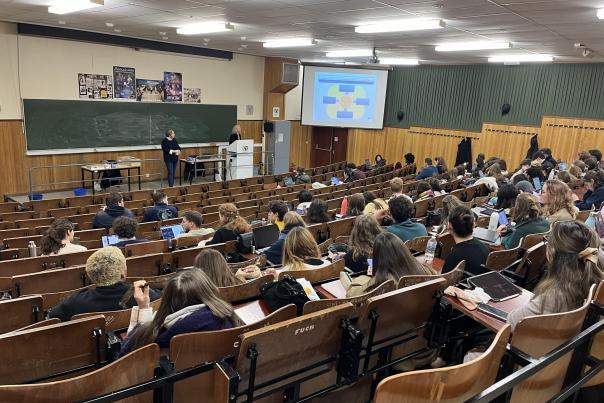Training tomorrow's doctors: a look back at the work of ASBL PAH
As part of the practical work (TP) in medical psychology at the University of Namur's Faculty of Medicine, a landmark intervention took place. A pair, comprising Dominique Damas, expert patient and active member of the ASBL PAH (Plateforme Annonce Handicap), and Dr. Latteur, physician, came to share their experience on a subject as delicate as it is essential: the announcement of bad news or serious diagnoses to patients.

